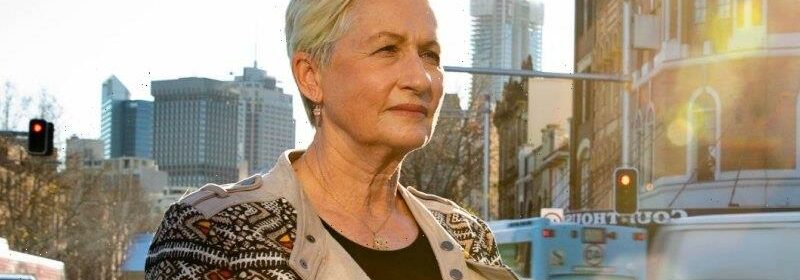‘Not anti-vaxxers’: Dr Kerryn Phelps says she suffered COVID vaccine injury, calls for more research

Former federal MP Dr Kerryn Phelps says she and her partner experienced vaccine injury, calling for tests for long COVID and vaccine injuries as well as more research on the long-term harms of the coronavirus and immunisation side effects.
Phelps said that until there were vaccines that prevented transmission, stronger public health messaging and measures were imperative to protect the vulnerable – including those with existing health conditions and people who could not have the vaccine.
Dr Kerryn Phelps says tests for long COVID and vaccine injury are important, and ongoing research is needed.Credit:Peter Braig
In a submission to an ongoing parliamentary inquiry on long COVID Phelps said she and her wife had both been injured after receiving COVID vaccinations.
She said her wife, Jackie Stricker-Phelps, suffered long-term symptoms including ongoing nerve pain and fatigue following her first injection, while Phelps herself experienced symptoms including breathlessness and irregular blood pressure following her second shot.
In an interview, the former Australian Medical Association president and medical practitioner said more research was vital to understanding both the disease and vaccine injury as the pandemic continues.
“People who have vaccine injuries are not anti-vaxxers, because they have turned up to have vaccines. They’re wanting to protect themselves against the serious consequences of COVID,” she said.
The Australian government’s Therapeutic Goods Administration website says vaccination against COVID-19 is the most effective way to reduce deaths and severe illness from infection and that the protective benefits of vaccination “far outweigh” the potential risks.
It says COVID-19 vaccines, like all medicines, may cause some side effects including injection-site reactions, headache, muscle pain, fever and chills, and it is monitoring and reviewing reports of myocarditis and pericarditis following vaccination, particularly in younger age groups.
There were nearly 111,700 COVID cases reported in the week to December 13, an average of nearly 16,000 cases a day. The number of hospitalisations rose by 8.9 per cent in the same week to a seven-day rolling average of nearly 3300.
Phelps said a “significant number” of people were suffering with long COVID and it was clear that reinfection was a serious risk factor. In her submission, she pointed to World Health Organisation estimates that between 10 and 20 per cent of people who contract COVID were left with lasting symptoms.
Kerryn Phelps and Jackie Stricker-Phelps say they have symptoms similar to long COVID after vaccine shots.Credit:Wolter Peeters
“We are facing a catastrophic toll of disability due to long COVID with broad implications for families, community, the health system, the workforce, the economy and all levels of government,” she said in her submission.
“People who are suffering from long COVID, people who are medically vulnerable despite vaccination and people who are unable to have further vaccines are bearing an unfair burden of the pandemic as it is allowed to spread through the community in the absence of effective public health measures.”
Phelps said the ongoing pandemic response could not be a vaccine-only approach, and needed to include better ventilation at schools, a zero transmission approach for hospitals, mandatory isolation periods, access to better masks, and improved public health messaging.
Nearly three years since the first case of COVID was detected in Australia, Phelps said the recognition of long COVID was still emerging and the understanding around vaccine injuries would also take time to emerge.
She noted in her submission that for many vaccine-injured people, the symptoms were similar to long COVID, including brain fog and fatigue.
“These people would be an important subset or control group for studies looking into the pathophysiology, causes of and treatments for long COVID,” she wrote.
In the interview, Phelps said working out how to treat people suffering the long-term implications of long COVID and vaccine injury was vital.
“One of the things that we need to do is to make sure that we get tests, we haven’t got specific investigations, which will say this is the long COVID test, or this is the vaccine injury test,” she said.
More than 64 million vaccine doses have been administered across the country, as of November 16, and since December 2021 people injured by one have been able to make a claim for compensation through the vaccine claims scheme.
A Services Australia spokesperson said as of November 23, the department has received 3100 applications, and 79 have been approved for claims totalling $3.9 million.
“The assessment process can be complex, and claims may also be reviewed independently by medical and other appropriately qualified experts,” the spokesperson said.
Phelps’ submission was number 510 of 531 to the parliamentary health committee’s inquiry into long COVID and repeated COVID infections, chaired by Labor’s Dr Mike Freelander. Phelps said the inquiry was a “real opportunity” for an informed conversation about planning for the future with the coronavirus.
Cut through the noise of federal politics with news, views and expert analysis from Jacqueline Maley. Subscribers can sign up to our weekly Inside Politics newsletter here.
Most Viewed in Politics
From our partners
Source: Read Full Article

